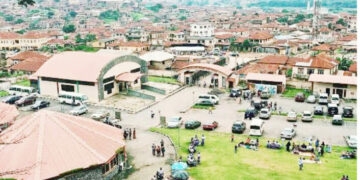The federal government in collaboration with the UK Foreign, Commonwealth and Development Office (FCDO), is intensifying efforts to promote the System of Rice Intensification (SRI) as part of a broader strategy to enhance rice productivity, cut greenhouse gas emissions, and improve smallholder farmer incomes.
Key stakeholders in the agriculture sector convened at a knowledge sharing event hosted by Propcom+, to evaluate the progress of SRI implementation in Nigeria and discussed strategies for expanding its adoption across rice-producing regions.
According to a partner with Propcom+, Aisha Aminu, who spoke on the economic benefits of SRI, the introduction of labour-saving devices and financial support mechanisms is making the approach more accessible to farmers. She said, “This solar irrigation system has freed money for us to invest in other inputs like fertilizer. Previously, I spent N400,000 on one and a half acres and earned between N1.1 million and N1.2 million. Now, I farm one hectare, spending N580,000, producing 96 bags instead of 30, selling at N51,000 per bag, and earning almost N5 million.”
Strategic Director of Propcom+, Olumide Ojo, reiterated that boosting productivity per unit of land is key to addressing Nigeria’s rising population and food demand. “Our goal is to improve efficiency by encouraging farmers to adopt better rice farming practices through SRI,” he stated
The CEO of Community Energy Social Enterprise, Dr. Patrick Tolani, emphasized that the success stories from farmers demonstrate the effectiveness of SRI practices in improving yield and profitability.
Also, the stakeholders, at the event, further underscored the UK government’s investment in Nigeria’s agriculture sector, reinforcing SRI’s potential to revolutionize rice farming, enhance food security, and drive economic growth.
Nigeria, Africa’s largest rice producer, still faces a shortfall of 1.8 million metric tonnes annually, with traditional farming methods contributing significantly to methane emissions.





